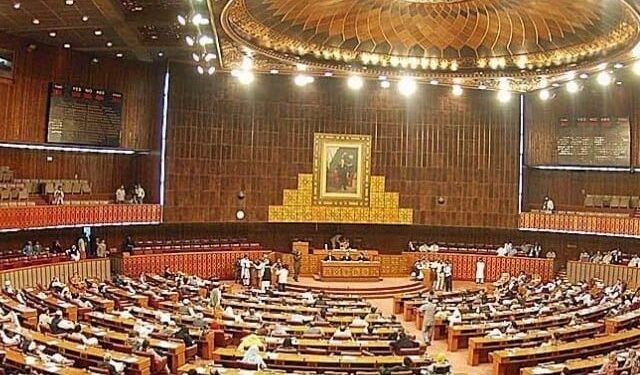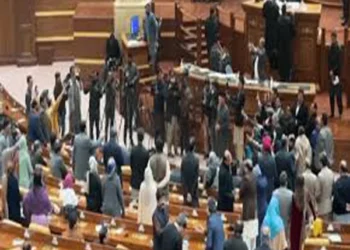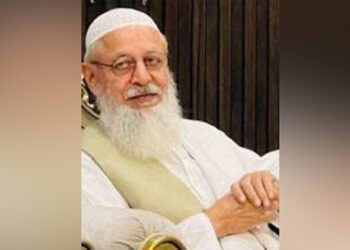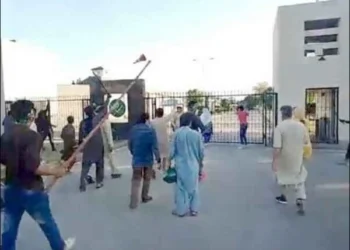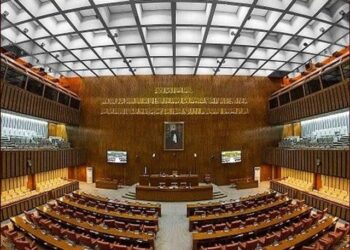Introduction
Islamabad: The opposition alliance, Pakistan Tehreek-e-Tahafuz Ain Pakistan (PTTAP), has officially announced its decision to boycott the National Security Committee (NSC) meeting scheduled for today. The decision has sparked discussions in political circles, raising questions about the motives behind the non-participation and its potential impact on the security dialogue within the country.
Overview of the National Security Committee Meeting
The in-camera session of the Parliamentary Committee on National Security is set to take place at 11 AM today at the National Assembly Hall. The meeting, convened on the advice of the Prime Minister, is expected to address pressing security concerns, including border tensions, internal security threats, and counter-terrorism strategies. The military leadership will provide a comprehensive briefing on the current security landscape in Pakistan.
Expected Attendees
The meeting will be attended by:
- Parliamentary leaders of all political parties represented in the National Assembly
- Nominated representatives from political factions
- Relevant cabinet members
- High-ranking military officials
The session aims to ensure a collaborative approach in addressing security threats and formulating effective policies for national stability.
Pakistan Tehreek-e-Tahafuz Ain Pakistan’s Stance
Akhunzada Hussain Yousafzai, the spokesperson for PTTAP, confirmed the party’s decision to abstain from the meeting. In a public statement, Yousafzai stated that the opposition alliance had unanimously agreed to boycott the NSC meeting due to concerns over transparency and the effectiveness of the security dialogue.
Reasons Behind the Boycott
PTTAP has cited multiple reasons for its decision:
- Lack of Meaningful Dialogue: The party believes that previous security meetings have failed to bring about tangible changes in national security policies.
- Limited Opposition Involvement: The alliance claims that opposition parties are often sidelined in crucial security discussions, reducing their role to mere spectators rather than active participants.
- Concerns Over Political Bias: PTTAP alleges that the ruling party uses security meetings to push its own agenda without addressing legitimate opposition concerns.
- Need for an Open Dialogue: The alliance has demanded that security discussions be held in a more inclusive and transparent manner, ensuring that all stakeholders have an equal say.
Implications of the Boycott
Political Repercussions
The decision by PTTAP to boycott the NSC meeting could lead to increased political tensions. The ruling party may interpret the move as an attempt to disrupt the national security discourse, while the opposition may use it as leverage to demand greater inclusivity in security-related decisions.
Security Challenges
With the absence of a key opposition alliance, the meeting may lack diverse perspectives on pressing security matters. National security is a collective responsibility, and opposition voices play a crucial role in shaping comprehensive policies. The boycott could potentially weaken the effectiveness of the discussions.
Government’s Response
The government has expressed disappointment over PTTAP’s decision. A senior official from the Prime Minister’s Office, speaking on the condition of anonymity, stated:
“The opposition’s refusal to participate in the NSC meeting is regrettable. National security is not a partisan issue, and all political entities should come together to address challenges facing the country. The government remains committed to ensuring a transparent and productive security dialogue.”
The Role of the Military Leadership
The military leadership is expected to provide a detailed analysis of:
- Internal security threats, including terrorism and extremism
- Border security concerns, particularly in regions like Balochistan and Khyber Pakhtunkhwa
- Relations with neighboring countries and potential security collaborations
- Counter-terrorism measures and intelligence-sharing efforts
The military’s perspective is crucial in shaping policy responses to emerging security challenges.
Conclusion
The decision by Pakistan Tehreek-e-Tahafuz Ain Pakistan to boycott the National Security Committee meeting underscores the ongoing political divide in the country. While the opposition alliance raises valid concerns about transparency and inclusivity, their absence from the discussion may limit the scope of comprehensive policy formulation. Moving forward, fostering an open and collaborative approach to national security remains imperative for Pakistan’s stability and development.
















